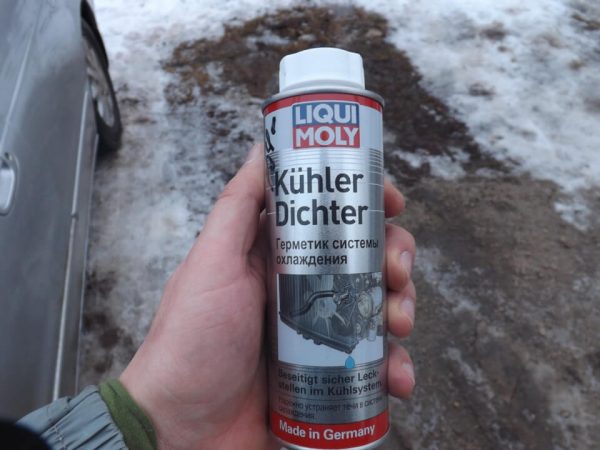All machine parts, especially those that are exposed to aggressive factors, wear out sooner or later. For example, cracks and traces of corrosion appear in engine cooling devices over time. To solve the problem on your own, you can use Liqui Moly sealant for the cooling system - this composition is specifically designed to eliminate leaks in difficult conditions.
- Product Description
- Sealant properties
- Specifications
- Application area
- Instruction for use
- Release forms, articles
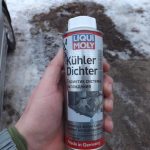
Product Description
Liqui Moly (Germany) is the largest manufacturer of auto chemicals, motor oils, lubricants and additives, which presents up to 6,000 items on the market. Among other things, Liquid Moli produces high-quality sealants for the radiator and the entire cooling system. Liqui Moly KuhlerDichter is a specialized composition for quickly eliminating small leaks of liquids circulating in the cooling system: water, non-freezing, antifreeze, etc.
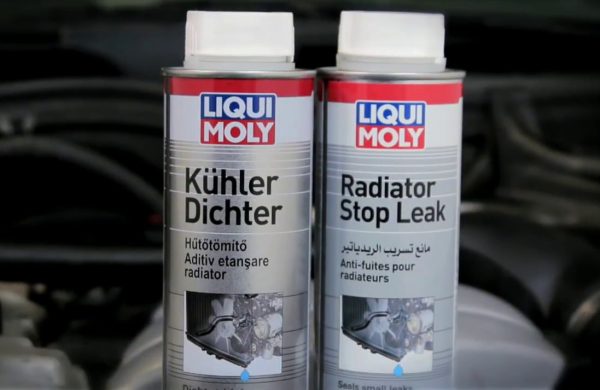
After contact with the problem area, the sealant plugs cracks and large pores in the metal, as well as defects at the joints of soldered elements. The tool is able to eliminate even those chips that are not visible to the eye. It can be combined with any additives and antifreeze, harmless to the cooling system.
The principle of operation of the sealant is based on starting the polymerization process as the mass solidifies. The polymer components in the composition tightly seal the defects on the metal, and adhesion additives (monomer + crushed plastic) enhance adhesion and envelop the walls of the crack. After solidification, the sealant turns into a durable plastic-like substance that is not afraid of aggressive substances, pressure, oxygen. The resulting “patch” not only eliminates the leak, but also prevents the penetration of coolant into the engine.
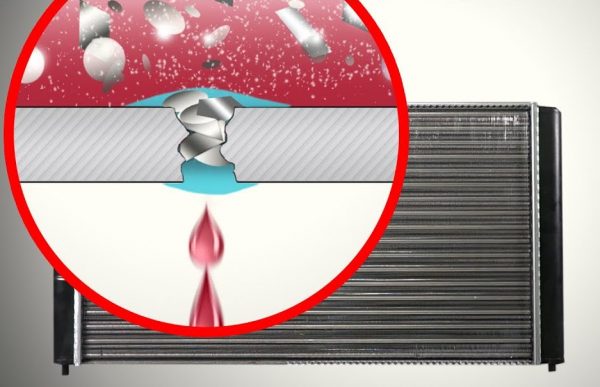
Sealant properties
In appearance, Liqui Moly KuhlerDichter sealant is a white-gray liquid composition containing polymer particles and a base of monoethylene glycol. The substance has the following properties:
- suitability for steel, aluminum, no harmful effects on these metals, as well as on water filters and pumps;
- the ability to close small and medium cracks;
- long service life;
- compatibility with the main components of the cooling system;
- safety and high efficiency;
- excellent grip;
- reliable isolation of the liquid after application;
- the possibility of use for preventive purposes.
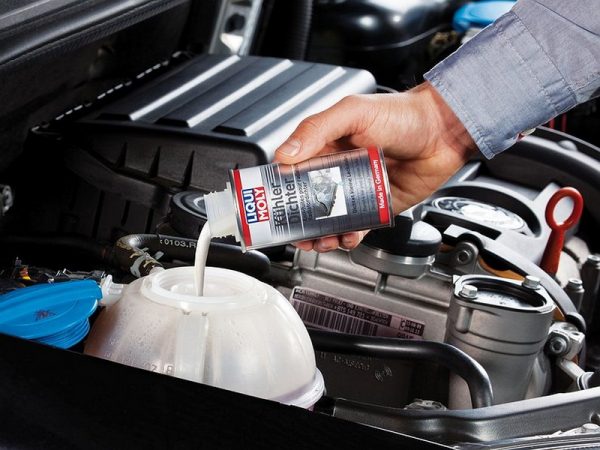
According to motorists, in the presence of small cracks, repair using a sealant will be no less effective than replacing a part, but the price of such work is incomparably lower.
to contents ↑You can do the repair yourself without contacting a car repair shop, and this will take a minimum of time.The sealant does not require long exposure of the machine without operation, which is very convenient for the driver.
Specifications
The Liquid Moth sealant has the following technical parameters:
- density at a temperature of +20 degrees - 1.07 g / cu. cm;
- viscosity - 30 seconds (when measured with a Ford glass with a nozzle of 4 mm);
- flash point - +200 degrees;
- solubility in water.
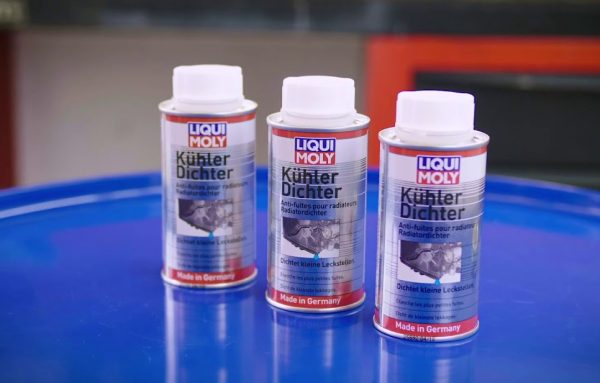
Application area
The sealant is designed to work with different types of equipment: trucks and cars, two-wheeled vehicles and buses. It allows you to seal leaks in radiators and tubes, remove excessive porosity in soldering, and repair hair cracks. The tool is particularly effective in relation to defects that are noticeable only by a decrease in the volume of liquid, but are not visible visually. The sealant is suitable for any cooling and heating systems, including those equipped with water filters.
to contents ↑Instruction for use
One 0.25 liter bottle is for 10 liters of coolant. Working with sealant is very simple. Instructions for use:
- Shake the can thoroughly to prevent delamination.
- Start the car, let the engine dial the desired temperature (approximately 10 minutes).
- Ignition OFF, carefully unscrew the radiator cap.
- Add coolant if necessary.
- Pour sealant (strictly with engine off).
- Start the engine again for 15 minutes.
After completing all the manipulations, you can begin to operate the machine. It is not necessary to drain the coolant: the remnants of the product can be in it without harm to the parts of the system.
to contents ↑Release forms, articles
Depending on the need, you can get different forms of the same sealant:
- 0.25 liter cylinder made of tin, art. 1997 (for trucks, cars, buses);
- cylinder of 0,125 l from tin, an art. 3034 (for motorcycles);
- bottle of 0.3 l, art. 1995 (to eliminate leaks in the hydraulic steering gear).
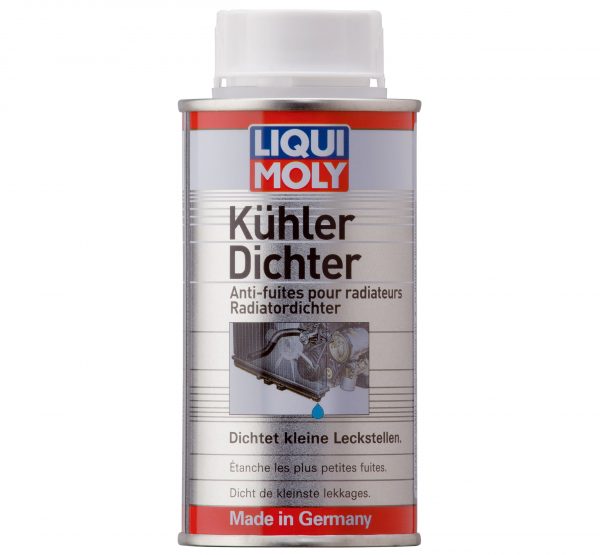
The use of sealant allows you to quickly eliminate radiator leaks, and you can ride for a long time after such a “home” repair. The tool provides tangible cost savings and requires minimal labor, therefore it is highly appreciated by motorists.



